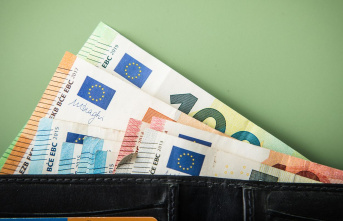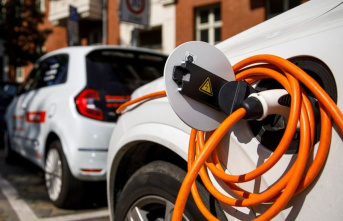More is less. The important development of renewable energies in the energy market to national, which have doubled from 8.3% which constituted in 2004, will leave Spain with little access to the new Fund a Just Transition of the European Union, according to data publidados this Wednesday by the European Commission.
The new budgetary instrument, the draft of which was approved by the European Commission on Tuesday, will help finance the industrial restructuring and energy necessary to achieve the objectives of the community in the fight against climate change. And the countries that benefit most will be those that have been delayed in the decarbonization of energy production, with Poland and Germany at the front.
Spain may only elect 4% of a Fund that aims to mobilize up to 104,000 million euros, according to the draft deal drawn up by the Commission. The document sets forth the distribution by States according to four criteria that clearly penalize the most advanced countries in the introduction of renewables as is the case in Spain.
Spain will correspond to 307 million 7,500 million that the Commission wishes to allocate to the Fund a Just Transition. This capital, according to the calculations of the Commission, will mobilise other 1.397 million from the structural funds. And the predictable incorporation of private capital rise to 4.456 million, the impact of the Fund in Spain in front of the 27,000 million of Poland or 13,000 million in Germany.
To ensure that a portion of the Fund reaches to all the member States, the Commission introduces a ceiling total (2,000 million euros) and a minimum in intensity of aid (6 euros per person). Poland achieves the maximum. And Spain is left with an intensity of 6.6 euros, among the lowest in the whole EU.
Poland, according to the distribution provided, we would be left with the fourth part of the Fund. And Germany could have stayed with the fifth part, but it has entered a correction (on the basis of the GDP), which reduces its share to 11%. Between these two countries and Romania and takeover more than half of a Fund with which Brussels seeks to convince the countries most reluctant to assume the objectives of reducing CO2 emissions by up to 45% in 2030 to reach net emissions to zero in 2050.
"What we are doing is to send a message to the coal miners in Asturias, Western Macedonia or Silesia", said on Tuesday Frans Timmermans, the vice-president of the European Commission responsible for the Covenant Green, during his intervention before the European Parliament to present the investment plans linked to the objectives in the climate. But the calculations are deprived of the Commission, which was not made public until this Wednesday, show that the message is rather directed towards Silesia and the rest of Poland and into East Germany.
The figures have been circulated by the Commission from among the representatives of the member States in Brussels, as part of the presentation behind closed doors of a Fund that is part of the funding plan of the so-called Compact or Green European Green Deal.
The main criterion of division (with a weight of 49% on the final note) is the level of emissions of gases with greenhouse effect in regions with a large intensity of production or consumption of coal. And the black palm is the leading Germany, in first place, followed by pro Polish, that add up to almost 50% of the more than 900,000 tons of CO2 emitted in Europe for that industry. Spain, with 42.700 tons, it is very far away from those two countries and below that of Italy, France, Holland or the Czech Republic.
The other important scale is the number of jobs in sectors linked to coal. And Spain, consequently, also figure in the lower part of the table with 276.000 jobs on a total of over seven million. Poland has almost two million jobs and Germany with more than 1.2 million, according to data distributed by the Commission.
what Money?
The European Commission wants to 7,500 million euros, the new Fund will be an additional sum to the next budgetary framework of the EU (for 2021-2027), which would preserve the integrity of the structural funds.
But the negotiation of the framework is still very much open, with an outcome still uncertain. Several partners, with the Netherlands at the forefront, they want to restrict the budget to leave it in the equivalent of 1% of the GDP of the 27 countries of the EU compared to 1.16% that represents the current frame, if it deducts the fee corresponding to the Uk (who will leave the club on 31 January).
The last proposal on the table, placed the expense at 1.07%, with a snip of 50,000 million over the initial proposal of the European Commission (who aspired to 1,11%). The third part of the crop is cebaría in the structural funds, with serious impact to the net balance of Spain to figure among the main recipients of that game.
The balance of the Spanish language could deteriorate further if the Transition Fund draws finally from the structural funds, a possibility that would wish supportive countries to restrict spending. The president of the European Council, Charles Michel, will be in charge of conducting in the next bilateral with the different capitals to test the degree of consensus. And, if it detects the possibility of agreement, may convene a european summit extraordinary in the month of February to close the first accounts of the EU after Brexit. Some accounts dwindling to a club for the first time lost a partner.
Date Of Update: 19 January 2020, 01:00





